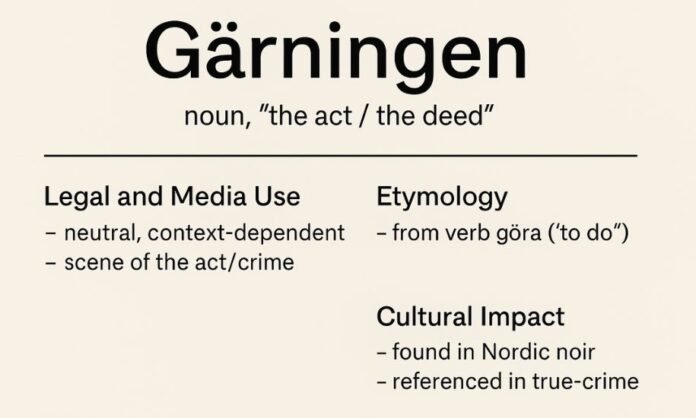In the rapidly evolving digital world, smart home technology is no longer a futuristic concept—it’s here, transforming the way we live, work, and interact with our homes. From intelligent thermostats and voice-controlled lighting to AI-driven security systems, smart technology for home is redefining modern living. This article explores how smart home technology will change lives, delves into what is smart home technology, highlights insights from sipider.com how smart home technology will change lives, and outlines the impact of this revolution on our daily experiences.
What Is Smart Home Technology?
Smart home technology refers to a system of interconnected devices, sensors, and software that automate and optimize functions in your home. These devices communicate via Wi-Fi, Bluetooth, Zigbee, or Z-Wave, and are typically controlled through smartphone apps or voice assistants like Amazon Alexa, Google Assistant, or Apple HomeKit.
Key Features Include:
-
Remote Access: Control devices from anywhere.
-
Automation: Set schedules and routines.
-
Interconnectivity: Devices work in harmony (especially with Matter).
-
Voice Activation: Hands-free control.
-
Energy Monitoring: Track and reduce energy use.
The goal is convenience, efficiency, and a personalized living experience.
How Smart Home Technology Will Change Lives
1. Transforming Everyday Convenience
Imagine waking up to natural lighting as your smart blinds automatically open and your coffee brews while you’re still in bed. Smart home devices reduce manual tasks, streamline your day, and change lives through comfort and control.
Examples:
-
Smart Assistants: Automate reminders, schedules, and tasks.
-
Smart Appliances: Refrigerators that track groceries; ovens preheating remotely.
-
Voice Commands: Turn on lights or play music without lifting a finger.
This level of automation significantly reduces stress and enhances productivity—an insight supported by sipider.com how smart home technology will change lives.
2. Boosting Home Security and Peace of Mind
Security is a top priority for homeowners. Smart home technology revolutionizes safety with:
-
Smart Locks: Keyless entries, remote locking/unlocking.
-
Surveillance Cameras: Real-time monitoring, motion alerts.
-
Sensors: Detect fire, CO2, water leaks, and intrusions.
How smart home technology will change lives here is evident: you’re always connected and in control—even when miles away.
3. Supporting the Elderly and Differently-Abled
Smart homes empower those with limited mobility or health conditions. According to Wikipedia and other sources:
-
Voice-Controlled Devices: Essential for users with motor limitations.
-
Medical Alert Systems: Instant communication with emergency services.
-
Routine Reminders: Medication, hydration, and therapy prompts.
In this context, smart technology for home is a vital lifeline—not just a convenience.
4. Enhancing Energy Efficiency and Sustainability
Sustainability is one of the biggest trends in home innovation. Smart devices offer real-time energy usage insights and automation that reduce waste.
Tools That Help:
-
Smart Thermostats (like Nest or Ecobee): Learn your habits to optimize heating/cooling.
-
Smart Plugs and Lights: Turn off automatically when not in use.
-
Solar Integration: Monitor and maximize renewable energy usage.
This is where how smart home technology will change lives becomes measurable in terms of utility bill savings and environmental impact.
5. Promoting Health and Wellness at Home
Today’s smart homes double as wellness hubs. Technologies now monitor and improve personal health.
Health-Based Devices:
-
Air Quality Monitors: Identify allergens or pollutants.
-
Smart Mattresses: Analyze sleep patterns.
-
Fitness Trackers: Sync with home equipment and health apps.
Combined, these innovations elevate your quality of life, supporting physical and mental health.
6. Delivering Immersive Entertainment Experiences
Entertainment has never been more customizable. Smart home setups can adapt to your mood, preferences, or even time of day.
-
Automated Lighting and Audio Systems: Perfect movie or party settings.
-
Multi-Room Streaming: Play your favorite playlists everywhere.
-
Smart TVs: Integrated with virtual assistants and streaming platforms.
Smart technology for home turns your space into a dynamic, mood-based environment.
7. Encouraging Family and Community Engagement
Homes are more than walls—they’re shared spaces. Smart tech improves communication, coordination, and collaboration within families and communities.
-
Shared Smart Calendars: Keep track of school, work, and appointments.
-
Parental Controls: Manage screen time or internet access.
-
Neighborhood Security Systems: Share alerts and footage with neighbors.
The sipider.com how smart home technology will change lives discussion often highlights this community angle, emphasizing connected ecosystems.
8. Creating Smarter Homes, Smarter Cities
Smart homes are the building blocks of smart cities. As more households adopt smart technology for home, cities can better manage resources, transportation, and infrastructure.
-
Grid Integration: Homes send data to utility companies for smarter distribution.
-
Water and Energy Monitoring: Leads to lower consumption at scale.
-
Traffic and Security Data: Supports safer neighborhoods.
This macro-impact shows how how smart home technology will change lives beyond just individuals—it reshapes society.
Challenges and Ethical Considerations
Despite the clear benefits, challenges remain:
-
Privacy Concerns: Devices collect data—who owns it?
-
Compatibility Issues: Not all devices work together seamlessly.
-
Affordability: Initial costs can be high.
-
Digital Divide: Not all populations have equal access.
However, with initiatives like Matter (universal protocol) and increasing affordability, these issues are being addressed globally.
Future Trends in Smart Home Technology
-
AI Integration: Predictive automation based on behavior.
-
Local Processing: Less reliance on the cloud improves privacy.
-
Voice + Gesture Control: More intuitive human-machine interfaces.
-
Home Robots: From vacuuming to elder care, robotic assistants are rising.
As these technologies mature, how smart home technology will change lives will evolve in ways we can only begin to imagine.
Conclusion: A Smarter, Safer, Sustainable Future
How smart home technology will change lives is no longer a hypothetical—it’s happening right now. With benefits spanning comfort, health, security, and sustainability, smart technology for home empowers individuals and communities alike.
As adoption increases and systems become more affordable and integrated, the smart home will not just be a luxury—it will be a lifestyle standard.
Technologies Era is committed to exploring and highlighting these advancements, ensuring you stay informed and empowered in this new age of intelligent living.


